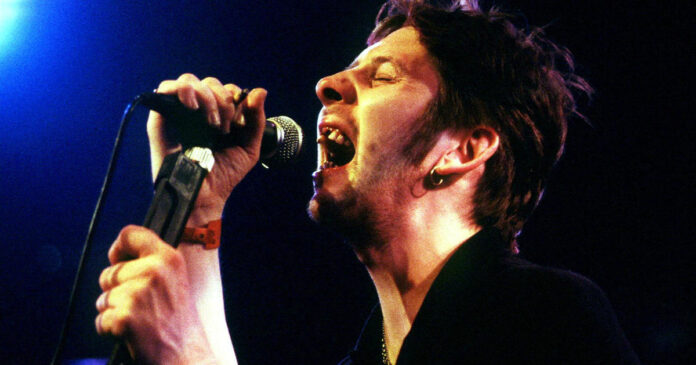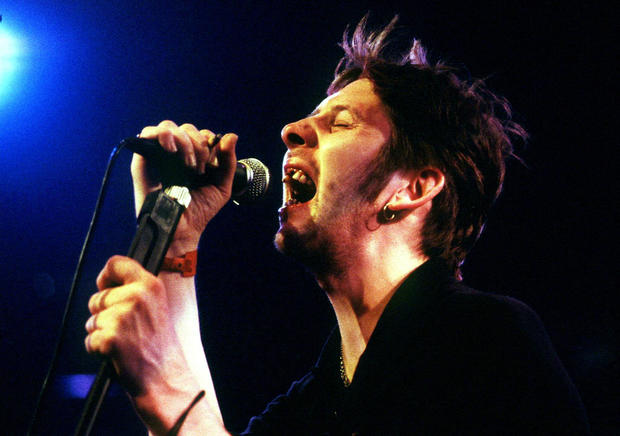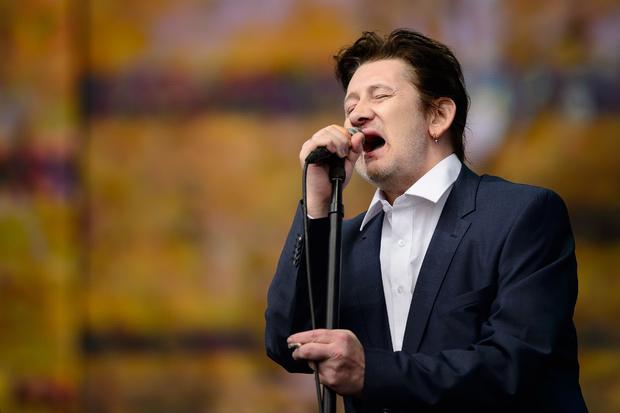Celtic folk-punk singer-songwriter Shane MacGowan, the beloved chain-smoking, hard drinking longtime front-man of The Pogues, has died at the age of 65, his wife Victoria Mary Clarke said in an Instagram post on Thursday.
“I don’t know how to say this so I am just going to say it. Shane who will always be the light that I hold before me and the measure of my dreams and the love of my life and the most beautiful soul and beautiful angel and the sun and the moon and the start and end of everything that I hold dear has gone to be with Jesus and Mary and his beautiful mother Therese,” Clarke said. “I am blessed beyond words to have met him and to have loved him and to have been so endlessly and unconditionally loved by him and to have had so many years of life and love and joy and fun and laughter and so many adventures.”
“It is with the deepest sorrow and heaviest of hearts that we announce the passing of our most beautiful, darling and dearly beloved Shane Macgowan,” Clarke said in a separate statement issued jointly with the singer’s sister Siobhan and father Maurice. They said he died peacefully with his family by his side.
MacGowan was discharged from a Dublin hospital on Nov. 22 after several months of treatment to return home to spend time with his friends and family, according to Irish state broadcaster RTE.
He struggled with health problems but returned to play with The Pogues in 2001 after a decade-long split due to his struggles with alcohol. About a decade after that his health deteriorated to the point that he could no longer perform, and his last gig with the band was in 2014.
The singer was born in southern England but spent much of his childhood with his mother’s family in the county of Tipperary in Ireland, where RTE said he was “surrounded by folk and traditional music” that would go on to form the basis of his band’s trademark sound.
MacGowan was ensconced in London’s 1970s counterculture punk rock scene as a young man and first joined a band called The Nipple Erectors, or just the Nips, before later forming what would become The Pogues with a couple friends. Their unique blend of the furious energy of punk rock with the emotional laments and instruments long associated with Irish folk music, combined with MacGowan’s poetic lyrics, saw the band bridge genres in a way few others had managed to do at the time.
“It never occurred to me that you could play Irish music to a rock audience,” MacGowan quipped in “A Drink with Shane MacGowan,” a 2001 memoir he co-authored with his wife. But he said “it finally clicked” that he could “start a London Irish band playing Irish music with a rock and roll beat. The original idea was just to rock up old ones but then I started writing.”
His death so close to Christmas will be particularly poignant for many in Britain and Ireland as The Pogues’ “Fairytale of New York” — an irreverent and tortured ode to love between Irish immigrants struggling to survive in the new world — has for years been a perennial favorite and chart-topper of the season. The song was the result of a 1987 bet that MacGowan, who was born on Christmas day, couldn’t write a Christmas song, according to RTE.
RTE quoted Irish President Michael Higgins as describing MacGowan as “one of music’s greatest lyricists” in a tribute.
Many of MacGowan’s “songs would be perfectly crafted poems, if that would not have deprived us of the opportunity to hear him sing them,” Higgins said. “His words have connected Irish people all over the globe to their culture and history, encompassing so many human emotions in the most poetic of ways.”
In her tribute to her late husband, Clarke gave a nod to MacGowan’s song-writing genius with her comment about him being the “measure of my dreams,” which comes from the final lyric in his “A Rainy Night in Soho”:
“Now the song is nearly over, we may never find out what it means. Still there’s a light I hold before me. You’re the measure of my dreams. The measure of my dreams.”
Source : Cbs News















